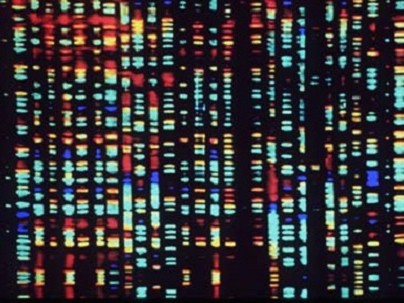Gene silencing could lead to cancer breakthrough, says Canadian study

 Canadian scientists have used gene silencing to make what they hope could be a breakthrough in the treatment of cancer.
Canadian scientists have used gene silencing to make what they hope could be a breakthrough in the treatment of cancer.
Researchers from the University of Toronto, led by Molecular Genetics Professor Jason Moffat from the University of Toronto’s Donnelly Centre, published a study in the journal Cell yesterday that details how they switched off about ninety per cent of the estimated 21,000 genes in the human genome to determine which are necessary for survival. They found only about 1500 qualified to be essential, meaning silencing or editing others that are involved in supporting disease could have potential.
The researchers found that cancerous tumours depend upon a unique set of genes and hope that treatments could be devised that target only cancerous cells.
“It’s when you get outside the core set of essential genes, that it starts to get interesting in terms of how to target particular genes in different cancers and other disease states,” says Moffat. “We can now interrogate our genome at unprecedented resolution in human cells that we grow in the lab with incredible speed and accuracy. In short order, this will lead to a functional map of cancer that will link drug targets to DNA sequence variation,” says Moffat.
The researchers used a technology called CRISPR (an acronym for clustered regularly interspaced short palindromic repeats) that is used for gene editing and has several potential applications including the treatment of genetic diseases and increasing food crop yields.
The $3-billion project Human Genome Project, proposed by the United States government in 1984, was a plan to determine the sequence of chemical base pairs that make up human DNA and to identify and map all of the genes of the human genome. The international effort began in 1990 and was completed thirteen years later. The Human Genome Project made the sequence of the human genome and tools to analyze the data freely available to anyone.
In 2001, National Human Genome Research Institute director Frances Collins characterized what had been achieved.
“It’s a history book – a narrative of the journey of our species through time,” he said. “It’s a shop manual, with an incredibly detailed blueprint for building every human cell. And it’s a transformative textbook of medicine, with insights that will give health care providers immense new powers to treat, prevent and cure disease.”
The findings of the Canadian study echo those of another from researchers at Harvard and MIT that also used CRISPR. In that study, “Identification and characterization of essential genes in the human genome” which was published in Science in October, researchers concentrated on cell lines derived from two different cancers, Burkitt’s lymphoma and chronic myelogenous leukemia. Their research identified genes essential to the diseases, and also identified genes that could be therapeutic targets.
“This is really the first time we can reliably, accurately, and systematically study genetics in mammalian cells,” said MIT’s David Sabatini. “It’s remarkable how well it’s working.”
But even within the scientific community some have raised doubts about the ethical implications of editing the human genome. Earlier this year, a group of prominent biologists called for a ban on the practice.
Geneticist Jason Morris, Associate Professor and Chair of the Department of Natural Sciences at Fordham University, thinks things may simply be moving too fast.
“There doesn’t appear to be a well-thought-out consensus on what sort of genetic manipulation on humans should be permissible or how to keep the genie in the bottle once the bottle is cracked open,” he says. “So yes, I’d say a moratorium is more than justified. I hope they use the time well.”
Nick Waddell
Founder of Cantech Letter
Cantech Letter founder and editor Nick Waddell has lived in five Canadian provinces and is proud of his country's often overlooked contributions to the world of science and technology. Waddell takes a regular shift on the Canadian media circuit, making appearances on CTV, CBC and BNN, and contributing to publications such as Canadian Business and Business Insider.
